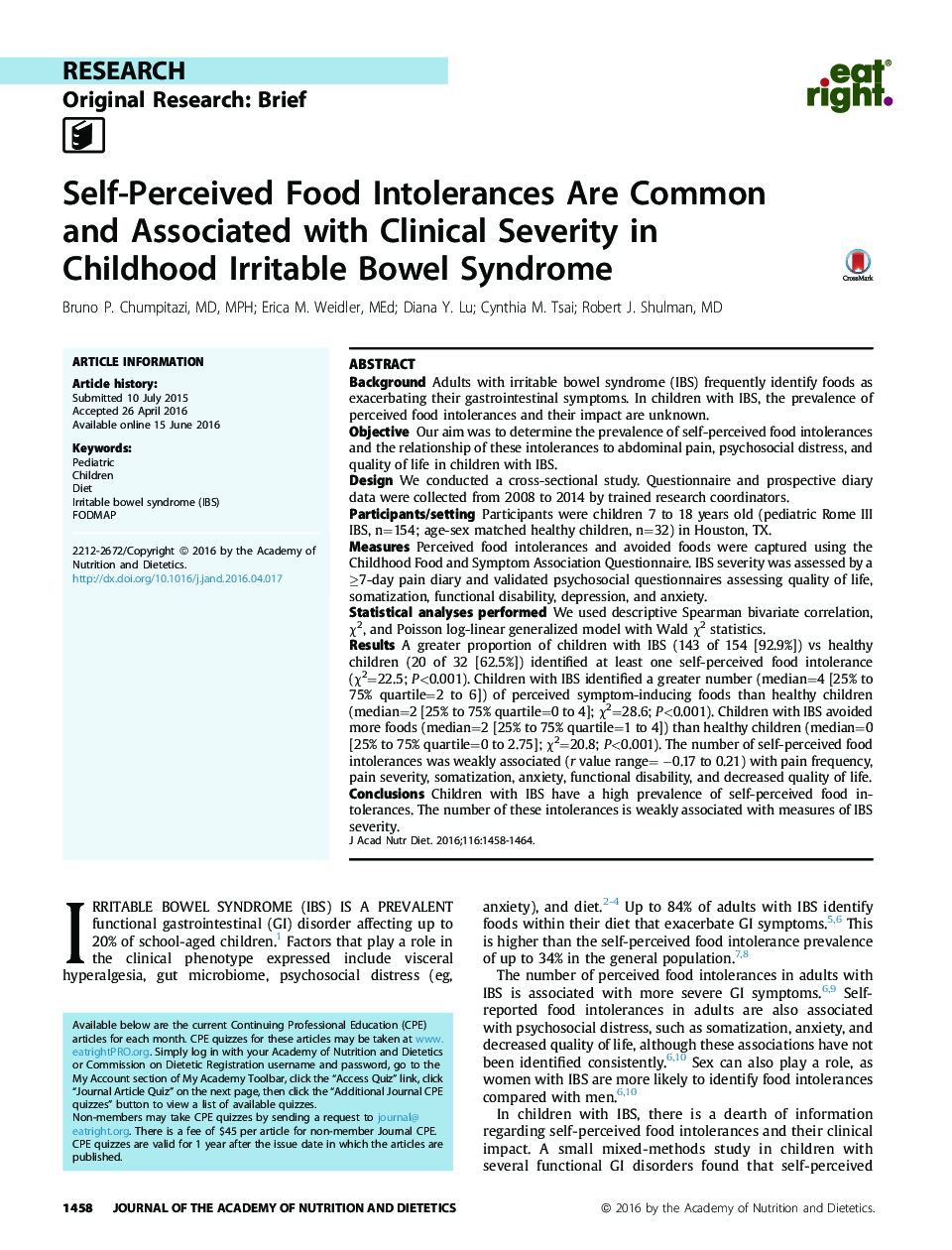| کد مقاله | کد نشریه | سال انتشار | مقاله انگلیسی | نسخه تمام متن |
|---|---|---|---|---|
| 5568797 | 1564032 | 2016 | 7 صفحه PDF | دانلود رایگان |
BackgroundAdults with irritable bowel syndrome (IBS) frequently identify foods as exacerbating their gastrointestinal symptoms. In children with IBS, the prevalence of perceived food intolerances and their impact are unknown.ObjectiveOur aim was to determine the prevalence of self-perceived food intolerances and the relationship of these intolerances to abdominal pain, psychosocial distress, and quality of life in children with IBS.DesignWe conducted a cross-sectional study. Questionnaire and prospective diary data were collected from 2008 to 2014 by trained research coordinators.Participants/settingParticipants were children 7 to 18 years old (pediatric Rome III IBS, n=154; age-sex matched healthy children, n=32) in Houston, TX.MeasuresPerceived food intolerances and avoided foods were captured using the Childhood Food and Symptom Association Questionnaire. IBS severity was assessed by a â¥7-day pain diary and validated psychosocial questionnaires assessing quality of life, somatization, functional disability, depression, and anxiety.Statistical analyses performedWe used descriptive Spearman bivariate correlation, Ï2, and Poisson log-linear generalized model with Wald Ï2 statistics.ResultsA greater proportion of children with IBS (143 of 154 [92.9%]) vs healthy children (20 of 32 [62.5%]) identified at least one self-perceived food intolerance (Ï2=22.5; P<0.001). Children with IBS identified a greater number (median=4 [25% to 75% quartile=2 to 6]) of perceived symptom-inducing foods than healthy children (median=2 [25% to 75% quartile=0 to 4]; Ï2=28.6; P<0.001). Children with IBS avoided more foods (median=2 [25% to 75% quartile=1 to 4]) than healthy children (median=0 [25% to 75% quartile=0 to 2.75]; Ï2=20.8; P<0.001). The number of self-perceived food intolerances was weakly associated (r value range= â0.17 to 0.21) with pain frequency, pain severity, somatization, anxiety, functional disability, and decreased quality of life.ConclusionsChildren with IBS have a high prevalence of self-perceived food intolerances. The number of these intolerances is weakly associated with measures of IBS severity.
Journal: Journal of the Academy of Nutrition and Dietetics - Volume 116, Issue 9, September 2016, Pages 1458-1464
